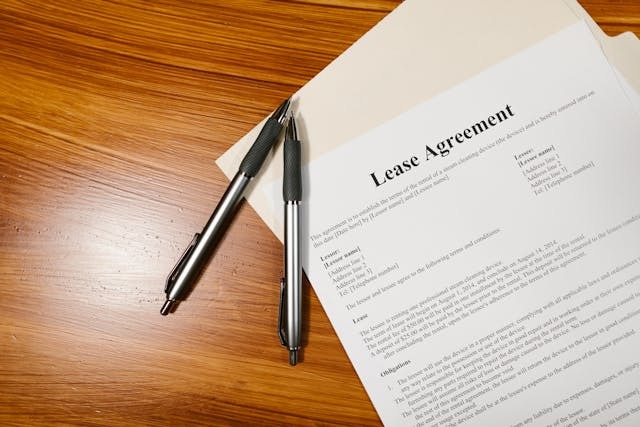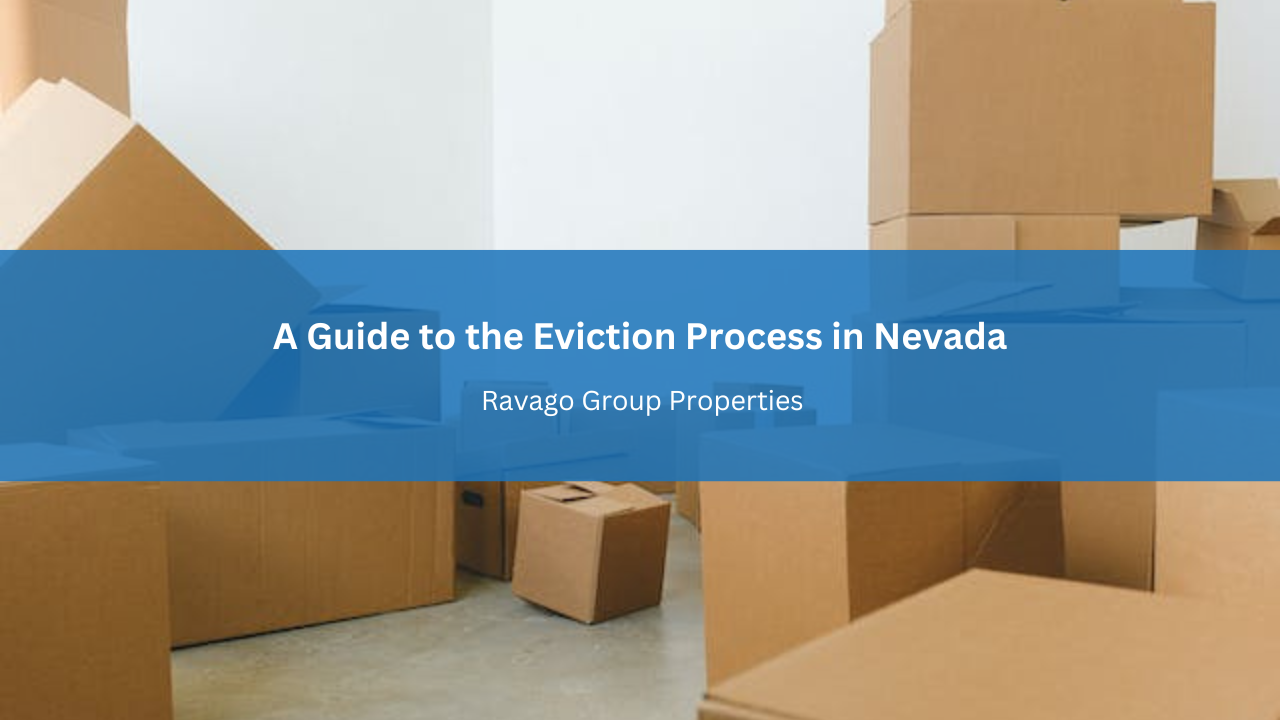Key Takeaways
When you own a rental property, needing to perform an eviction is always a possibility.
It’s important as a landlord to fully understand the proper eviction process in your state.
Working with a property management team can streamline rental operations and ensure legal compliance.
Investing in Nevada real estate can be the key to financial freedom. A rental property can help you secure a steady stream of passive income, while also benefiting from long-term appreciation and equity growth. However, managing a rental property is far from a walk in the park, especially when it comes to dealing with tenants.
Tenant relations are one of the most important aspects of successful property management. Building positive relationships with tenants fosters trust, encourages open communication, and leads to longer lease terms. When tenants feel valued and respected, they’re more likely to take care of the property, pay rent on time, and renew their lease. However, sometimes, tenants don’t cooperate.
Ending up with problematic tenants can result in costly property damage, increased stress, and long-drawn legal battles. Luckily, Nevada landlord-tenant laws offer a simple solution: eviction. While the Nevada eviction process is simpler than in other states, it can be difficult to follow. Luckily for you, the team at Ravago Group Properties has written this guide! Keep reading to learn how you can efficiently evict unsuitable renters from your home.
A Breakdown of the Eviction Process in Nevada
The Nevada eviction process is considered relatively efficient compared to many other states. Evictions can move quickly, especially for nonpayment of rent, as landlords may file for summary eviction without lengthy court delays. However, strict procedural rules must be followed, such as proper notice and documentation, to avoid dismissal. While the system favors property owners, tenants still have opportunities to contest evictions, meaning organization and compliance with Nevada law are essential for a smooth process.
If you want to learn more, then keep reading! Here’s everything landlords should know about Nevada’s eviction process.

1. Causes for Eviction
Nevada landlords can rightfully terminate a lease and evict a tenant under specific circumstances, including the following:
Failing to pay rent on time
Staying on the property after the lease ends
Violating the terms of the lease
Committing illegal activities on the premises
2. Serving Tenants with an Eviction Notice
No matter the grounds for eviction, landlords must give tenants proper notice and provide them a chance to fix the violation. Here are the typical timelines for notice, depending on the cause of eviction:
Nonpayment of Rent. If the tenancy lasted 45 days or less, landlords must give tenants at least 4 days’ notice. For all other tenancies, the minimum is 7 days’ notice. If tenants pay their debt within this timeframe, the eviction process cannot continue.
End of Lease or No Lease. No matter the duration of the tenancy, landlords should give at least 30 days’ notice. If the tenant does not move out by the end of the notice period, the landlord can move forward with the eviction process.
Illegal Activity. In the case of illegal activity, landlords must give tenants 3 days’ notice to vacate, without the opportunity to make up for the violation.
Unlawful Detainer. Nevada landlords can evict a tenant for failing to comply or vacate after receiving the proper eviction notice. To do so, they must first serve the tenant with at least 5 days’ notice to vacate the unit.
Lease Violation. The minimum notice is 5 days. Moreover, landlords are required to allow tenants a chance to cure the violation within that timeframe.

In most states, landlords are required to serve tenants with the notice by hand. But Nevada law states that landlords must request a sheriff, constable, process server, or special agent for an attorney to do it.
3. Filing an Eviction Lawsuit with the Court
If the tenant fails to comply or vacate after the provided notice period, the landlord can file a summary eviction with the local Justice Court. The summons and complaint must then be served to the tenant by the sheriff, deputy sheriff, or anyone over the age of 18 who isn’t part of the case, before the date of the eviction hearing.
4. Tenants' Right to Object to the Eviction
Tenants in Nevada can object to an eviction. To do so, they must file an affidavit with the court within 3 to 30 days of receiving the initial eviction notice, depending on the reason for the eviction. The affidavit is the tenant’s chance to explain to the court why they should not be evicted.
If a tenant fails to file an affidavit in time, the judge may issue a default judgment in favor of the landlord. If the tenant files an affidavit or the judge believes the landlord didn’t provide sufficient proof to back their claim, they’ll schedule a court hearing.

5. Attending the Court Hearing
The court hearing is held shortly after tenants file an affidavit. If the tenant fails to attend the hearing, the judicial officer could rule in favor of the landlord. However, if they do attend, the eviction hearing will take place. Both landlords and tenants may request a 5-day continuance, and tenants may be granted a continuance of up to 30 days to gather the necessary proof on their behalf.
6. Getting an Order of Removal
If the judicial officer rules in favor of the landlord, either through a default judgment or at an eviction hearing, an order for removal will be issued within up to 5 days after the hearing ends. This serves as the tenant’s final notice to vacate the rental unit, allowing them to remove their belongings before they are forcibly removed.
Bottom Line
Dealing with problematic tenants is every landlord’s worst nightmare. After all, it can result in property damage, big financial losses, and lengthy disputes. And the solution sounds more like a hassle to most landlords. But it doesn’t have to be!
Evicting tenants in Nevada is relatively easy. The process usually takes between 1 and 6 weeks. But it can take longer depending on the reason for eviction, whether tenants contest the eviction, and other delays, like the courts being closed on specific dates. By being patient and following the steps outlined above, you can streamline the process and save yourself from plenty of headaches.
If you have further questions about the eviction process in Nevada, contact Ravago Group Properties!
Please note that the information provided in this blog is intended for general guidance and should not be considered as a replacement for professional legal advice. It is important to be aware that laws pertaining to property management may change, rendering this information outdated by the time you read it.


